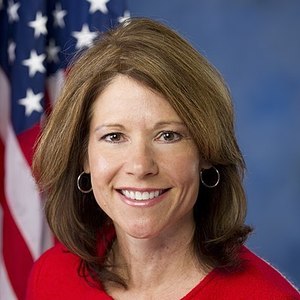Bustos: CCS bill would benefit ethanol producers

February 18, 2019
BY Erin Krueger
Legislation introduced this month in the U.S. House of Representatives that aims to support the development and demonstration of carbon capture and removal technologies could benefit ethanol producers, according to Rep. Cheri Bustos, D-Ill.
On Feb. 13, Reps. Scott Peters, D-Calif., and David McKinley, R-W.V., introduced H.R. 1166, the Utilizing Significant Emissions with Innovative Technologies (USE IT) Act. The bipartisan bill authorizes $35 million in competitive prize funding for direct air capture technology and allocates $50 million toward research and development of technologies that transform captured carbon dioxide into commercial products. The USE IT Act also facilitates the construction and development of carbon capture, utilization and sequestration (CCUS) infrastructure projects. In addition, the bill promotes emerging net negative emissions technologies, particularly direct air capture (DAC) technology, which prevents CO2 emissions by removing CO2 directly from the atmosphere.
Following its introduction, the bill was referred to the House Committee on Energy and Commerce, along with the Committees on Science, Space and Technology, Natural Resources, and Transportation and Infrastructure. The Committee on Transportation and Infrastructure also referred the bill to its Subcommittee on Highways and Transit. To date, McKinley, Bustos, and Reps. Marc Veasey, D-Texas, and David Schweikert, R-Ariz., have signed on to cosponsor the legislation.
Advertisement
A statement released by Bustos indicates the USE IT Act is an important first step to enable ethanol producers to capitalize on the 45Q tax credits, with incentivize the deployment of carbon capture and storage (CSS) technologies.
“With a struggling farm economy and changing weather patterns, we need to do everything we can to help our agricultural producers succeed and aggressively tackle this climate crisis,” Bustos said. “Carbon capture, storage and utilization is a largely untapped financial opportunity for our Illinois ethanol producers, and this common-sense, bipartisan bill is an important first step to help them remain successful and make our all-American, homegrown energy cleaner. As a member of the House Agriculture Committee, I’ll continue working across the aisle to support our producers, grow the economy in rural areas and address climate change threats that impact livelihoods in the Heartland.”
Advertisement
“Some in the ethanol industry, including our company, are investigating ways to capitalize on new carbon capture and sequestration technologies and we see great potential synergies between ethanol and CCS,” said Neil Koehler, CEO of Pacific Ethanol Inc. “We appreciate the leadership of Congresswoman Bustos on this issue and many others and look forward to working with her.”
According to Bustos, the bill was first introduced in 2018. Sens. John Barrasso, R-Wyo., and Sheldon Whitehouse, D-R.I., introduced an identical bill in the U.S. Senate.
Additional information on the bill is available on the Congress.gov website.
Related Stories
The U.S. Energy Information Administration maintained its forecast for 2025 and 2026 biodiesel, renewable diesel and sustainable aviation fuel (SAF) production in its latest Short-Term Energy Outlook, released July 8.
XCF Global Inc. on July 10 shared its strategic plan to invest close to $1 billion in developing a network of SAF production facilities, expanding its U.S. footprint, and advancing its international growth strategy.
U.S. fuel ethanol capacity fell slightly in April, while biodiesel and renewable diesel capacity held steady, according to data released by the U.S. EIA on June 30. Feedstock consumption was down when compared to the previous month.
XCF Global Inc. on July 8 provided a production update on its flagship New Rise Reno facility, underscoring that the plant has successfully produced SAF, renewable diesel, and renewable naphtha during its initial ramp-up.
The U.S. EPA on July 8 hosted virtual public hearing to gather input on the agency’s recently released proposed rule to set 2026 and 2027 RFS RVOs. Members of the biofuel industry were among those to offer testimony during the event.
Upcoming Events










